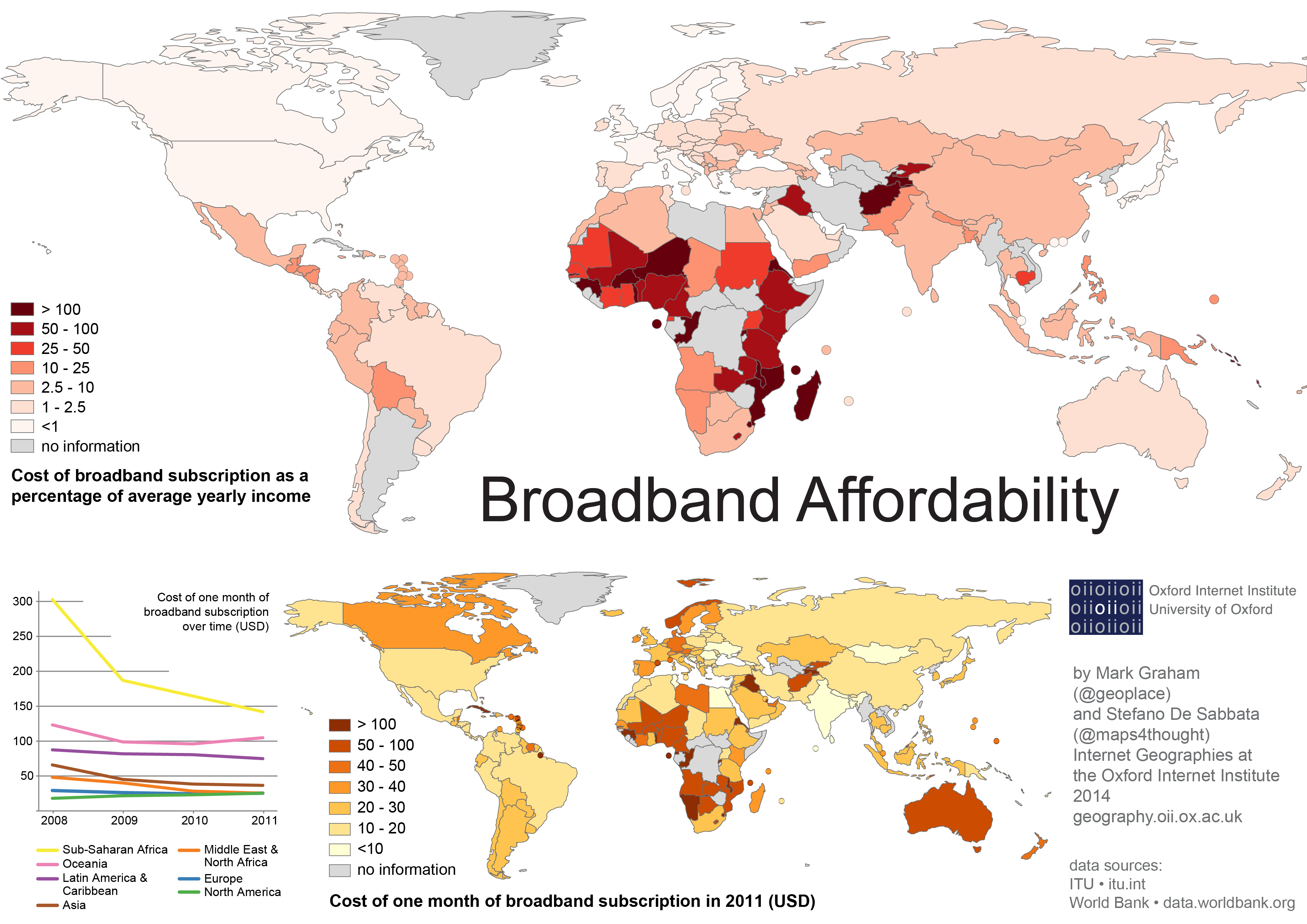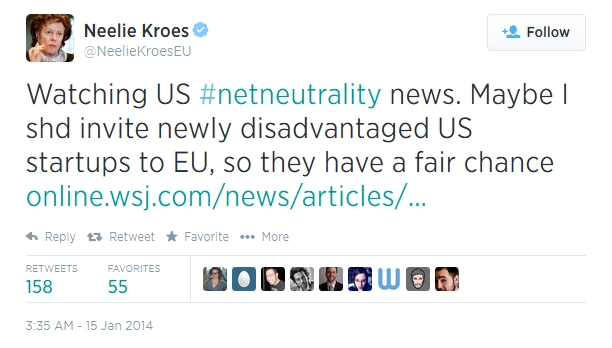I’ve been holding off on commenting against the FCC’s new rules which would create the “fast lane” tiered Internet that many individuals, corporations, and news outlets are shouting about.
There is a brief article from Voice of America titled Net Neutrality Debate in US Could Have Global Ripple Effects that mentions the potential boon for non -US-based content providers. In essence if your nations ISP has no partnering agreement with those in the US, accessing US-based services will be slow enough to encourage locally-based alternatives to spring up in their place.
A tweet mentioned in the article from the EU commissioner states:
Have you ever heard of the a Splinternet? Splinternets are an idea where different countries or institutions create their own subset of the Internet which appeals only to those interested in it. This is a particular possibility with the ISPs in the US screwing with speeds and accessibility of US based content. This fracturing of the Internet could result in every country having its very own nationally-based Internet, subject to its own rules and regulations. The global internet that we know could come to a quick end.
Throughout my Peace Corps service I tried many different routes to encourage local innovation and content creation amongst the members of the Swaziland Computer Society. I wanted to encourage this behavior for a few different reasons.
- The primary and most obvious reason is the impact local knowledge could contribute to solutions that are important and meaningful to the users within the country. When we started talking about the “Lets-Meet-App” phone app, it was a locally developed app to solve a local problem. Our group has the talent to create solutions for our communities, why not use it!
- Secondary to the benefit of locally-contributed solutions, was having the services hosted in-country means less reliance on foreign content providers. Keep the money inside the country! Basing services off MTN Hamba-mali (mobile phone airtime-to-cash service) keeps the economy local and enables locally-relevant payment processes.
- Local services would be faster, there are a limited number of government-controlled Internet gateways into and out of the country, presenting a serious bottleneck as more and more Swazis get online and accessing bandwidth-heavy services from outside the nation.
- It’s important to remember that Swaziland is an absolute monarchy under growing international pressure to reform. There is a constant simmering belief that the Internet connection to the outside world could be severed arbitrarily at any second. It already fails a few times per year. If the services are hosted in-country, disruption from beyond the national borders could be reduced.
If the FCC continues down the path of eliminating Net Neutrality and encouraging the tiered access model, services in the US will quickly begin to resemble the situation in Swaziland. Not very long ago childish and illogical court battles over who could provide mobile data services in the country resulted in a devastating blow to the digital future of the country. The court decision there resulted in the cutting-edge 4G WiMAX services being forcefully turned off. A country that was on the cusp of digital transformation was shoved back into the Internet dark ages.

After the court ruling, the fast-lane that was affordable to everyone was shutdown in favor of continuing the over-priced monopoly that MTN offered for 3G service. This older 3G service is slower and costs 5 times more than that was offered with the 4G services. Suddenly the ability to access content was stolen from regular people and given back to only the rich that could afford it. The average income for a Swazi living in the rural areas is less than $2 per day. It is an offensive idea to suggest they spend 50% of that income on 10MB of data.
How on earth can any one of the SCS members be innovative and create new online services and revolutionize their country when they are oppressed by a “rich-people only” Internet.
With the US supreme court striking down the FCC’s net neutrality arguments, they have created a space for corporations to split American content-providers between the wealthy and everyone else. While the implications for the loss of Net Neutrality may have a positive side-effect on the local-solutions created by developing nations, the effects of this for US solution providers are disastrous and should be deeply troubling to every American and every consumer of American-based content.
I am constantly looking for new ways to support the technological-inclusion of developing nations in the future. I want to help bridge the digital divide, but how can I tell people about new developments if they have to pay access fees to even get to my website?
How can the Non-profit I help with hope to get visitors to donate to their page if visitors can’t even load a video plea?
How can the business you are working for right now draw more viewers if the ISPs want to charge you extra for your content? How could you ever hope to increase your market share against the titans of your industry?
We simply can’t allow the FCC, the corporations, or anyone from destroying the most incredible tool that humanity has ever created. We are all in this together, please send the FCC your comments now before June 15th and help support the continued freedom of an Internet-For-All!
Submit a comment to the FCC:
http://act.freepress.net/letter/internet_fcc_nprm_oliver/?source=share
Write a letter to Congress:
http://act.freepress.net/sign/internet_nn_congress_latta
